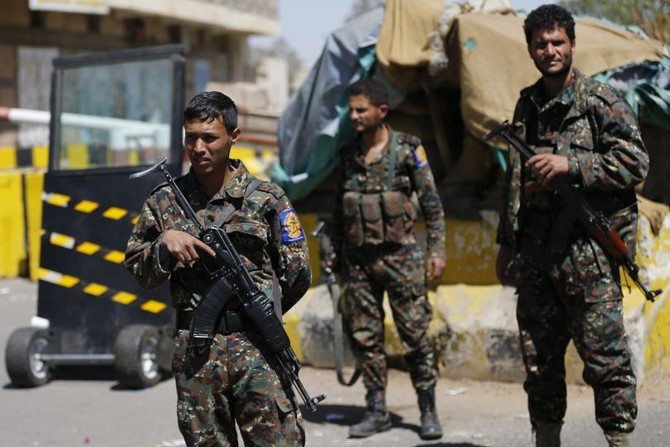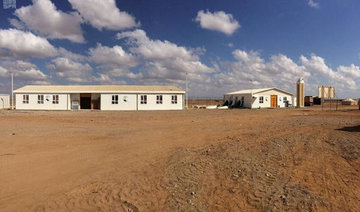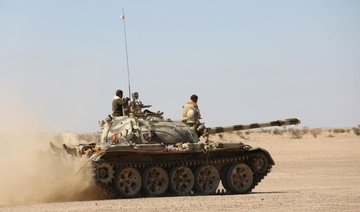SANAA: Yemeni security officials say unidentified gunmen have abducted an employee at the UN migration agency in the capital, Sanaa.
The officials said late Friday that Hisham Abdel-Rahman Bagash was abducted a day earlier when a masked man led him out of his car and threatened him with a gun.
The officials spoke on condition of anonymity because they were not authorized to brief the media.
Bagash’s father, Abdel-Rahman, said in a Facebook post that his son was accompanied by his wife at the time of the abduction but the kidnappers only took him. His whereabouts are unknown.
Yemen has been embroiled in a civil war pitting Iran-backed Houthis against a Saudi-led coalition backing an internationally-recognized government since March 2015.
Officials say UN migration agency employee abducted in Yemen
Officials say UN migration agency employee abducted in Yemen

Qatari emir visits LNG exhibition in Doha

- LNG2026 runs until Feb. 5 and features more than 300 companies from the global LNG value chain
- Qatar plays a significant role in the LNG industry as one of the world’s leading producers
LONDON: Qatari Emir Sheikh Tamim bin Hamad Al-Thani patronized the launch of the 21st International Conference and Exhibition on Liquefied Natural Gas at the Qatar National Convention Center in Doha this week.
LNG2026 runs until Feb. 5 and features more than 300 companies from the global LNG value chain, including production, processing, liquefaction, storage, transport, distribution and end-use applications.
It hosts a large 800 sq. meter QatarEnergy pavilion showcasing Qatar’s significant role in the LNG industry and its status as one of the world’s leading producers and exporters. Sheikh Tamim visited the exhibition pavilions, discussing innovations and technologies in the energy sector with senior officials from international companies, according to Qatar News Agency.
Digital technology plays a crucial role in the exhibition, highlighting companies that use AI, big data analytics and intelligent systems to improve LNG operations, QNA reported.














